The 9 Best Dog Foods for Australian Shepherds
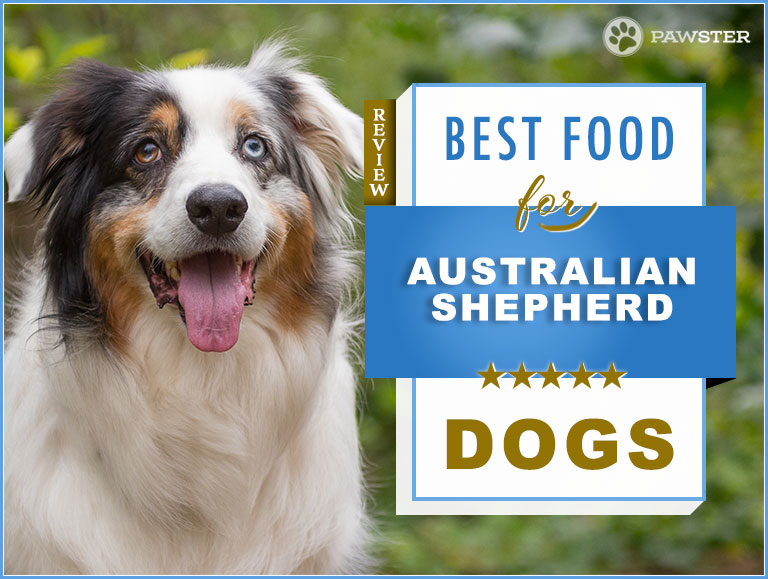
Contents of Article
Despite their name, Australian Shepherds are an American breed, though they took a round-about way of making it to the U.S. As the story goes, sheep herding dogs from the Basque country in Europe were brought to Australia in the early 19th century. These shepherds stayed in Australia for only a short time before moving on to the American West with their dogs. There the dogs were highly appreciated on the range, working as stock dogs. In the 20th century Aussies became even more popular when Western riding and other Western sports became popular.
Australian Shepherds are very intelligent and considered easy to train. They excel at obedience, agility, herding, and all kinds of dog sports. They are very energetic dogs and they need to have a job to do. If they don’t have work or training to keep their minds busy, they can become destructive. Loving and devoted to their owners, Aussies tend to be reserved with people they don’t know. They do bark to give warnings when they see something suspicious. Aussies are medium-sized dogs weighing up to 70 pounds. They have a medium-length, weather-resistant coat that comes in black, blue merle, red merle and red with or without white markings. Australian Shepherds are good with children and make a good dog for an active family.
What is the Best Dog Food for an Australian Shepherd?
- American Journey Salmon & Sweet Potato Recipe Grain-Free Dry
- Ollie Healthy Turkey Feast Fresh Dog Food
- Taste of the Wild High Prairie Grain-Free Dry
- Merrick Grain Free Real Chicken and Sweet Potato Recipe
- ACANA Heritage Free-Run Poultry
- Wellness CORE Grain Free Original Formula
- Canidae Grain Free PURE Foundations Puppy Formula
- Nulo Freestyle Puppy Salmon & Peas Recipe
- Earthborn Holistic Puppy Vantage
General Nutritional Recommendations
While individual dogs and breeds can have some special dietary needs, dogs in general all have the same general nutritional requirements. All dogs need these basic nutrients in their diet:
- Protein
- Fat
- Carbohydrates
- Fiber
- Vitamins
- Minerals
- Water
Protein
There is some debate over whether dogs are carnivores or omnivores. Biologically-speaking, dogs are descended from wolves, which are carnivores. But dogs also have definite scavenging tendencies. Over millennia they have adapted to be able to digest more starches in their diet than wolves can. For this reason, many people consider dogs to be omnivores. At any rate, they are definitely not obligate carnivores – requiring meat in their diet the way cats do to survive. Dogs that eat a meat-only diet will become sick. They can’t survive on this kind of diet. This doesn’t mean that meat protein isn’t good for your dog. Most dogs love meat protein and it is good for your dog. But in order for your dog to have a diet that is complete and balanced, he needs more than just animal protein.
Protein provides your dog with energy, supports his immune system, repairs cells, helps build lean muscle, and contributes to his healthy skin and coat. All dogs can benefit from protein, from puppies to seniors. Most canine nutritionists today believe that dogs benefit from higher amounts of protein. The only exceptions would be if your dog has a health issue that would require him to eat less protein such as severe kidney disease. Even for dogs that have early stage kidney disease, research shows that it’s not necessary to reduce their protein levels.
When looking at dog foods you do need to differentiate between animal sources of protein and plant sources of protein. It’s easier for dogs to digest animal sources of protein than plant sources. We see lots of plant sources of protein in dog foods today such as peas and lentils. These ingredients have largely replaced grains such as corn and wheat. Grain free dog foods have become very popular as people try to avoid “filler” ingredients. Dog food manufacturers like these ingredients because they are less expensive than meat proteins. They provide more protein than corn and wheat used to provide, along with some vitamins and fiber. But the protein in peas and lentils is not as bioavailable to your dog as the protein in animal protein. Some dogs can also have difficulty digesting plant proteins because of their higher fiber content. And some dogs are beginning to have allergies and food sensitivities to peas and other plant proteins. This is not unusual with any protein that becomes very commonly used in dog foods.
Foods that use lots of plant sources of protein will often have high protein percentages. Dog owners will often think that they are providing their dog with lots of protein – and they are. But a lot of the protein in the food may be coming from plant sources. Since this protein is more difficult for dogs to digest, your dog may not be able to use it as easily as meat protein. (This is one reason why so many dog foods now include digestive enzymes to improve digestion of the food.) It’s important to examine the ingredient label and determine how much of the protein in the food comes from animal sources and how much comes from plant sources. If most of the protein comes from plant sources, you could be better off buying a food that uses more meat, even if it has small amounts of grains. The protein percentage may look lower, but if most of the protein is coming from animal protein, it could be better for your dog.
You don’t have to completely avoid dog foods that use plant sources of protein but you do need to look for foods that have plenty of animal protein. Ideally a food will have several sources of animal protein as the first few ingredients. These ingredients could be whole meat proteins and named meat meals. Peas and lentils, or sweet potatoes, and so on, may follow. Keep in mind that whole meats contain lots of water. This means that after cooking, when the water is removed, the protein in those whole meats would be listed much farther down in the ingredient list. What this means is that if the first ingredient in the ingredient list is whole chicken, followed by peas, lentils, and chickpeas, your dog is probably eating mostly plant protein. You would be better off buying a food that lists a whole meat followed by a named meat meal. Named meat meals have already had most of their moisture removed so they are primarily protein when they are listed on the ingredient label.
AAFCO (the Association of American Feed Control Officials) recommends that adult dogs such as Australian Shepherds have at least 18 percent protein in their diet. Growing puppies need at least 22 percent protein in their diet. Most dog foods today have protein percentages that are higher than these recommendations. The exceptions are usually limited ingredient diets (LID) or hypoallergenic foods. These foods sometimes use plant proteins or unusual meat proteins in order to provide foods that won’t trigger an allergic reaction. Most dog food experts suggest that healthy adult dogs today eat a diet that has higher protein, moderate fat, and low carbohydrates. If your Australian Shepherd has any kind of health problem, we suggest that you consult with your veterinarian about his diet. A canine nutritionist may also be able to offer advice.
Good sources of animal protein for your Aussie include meat, poultry, fish, and eggs. These animal protein sources will provide your dog with all of the essential amino acids he needs for good health. Plant proteins also provide some amino acids but they generally don’t have the complete amino acid profiles that animal proteins provide. Most of them are deficient in one or more of the essential amino acids that dogs need.
Fat
Along with protein, fat provides your dog with a source of energy and it’s important for your dog’s health. Fat is a healthy part of your Aussie’s diet. It provides a source of fatty acids such as omega-3 and omega-6 which help your dog have a healthy skin and coat. Essential fatty acids (EFA) help your dog absorb vitamins A, D, E, and K.
As with protein, animal sources of fat are usually better for your dog than plant sources, and for the same reason. Your dog can use animal sources of fat more easily than plant sources. Good sources of fat in your dog’s diet include chicken fat, fish, and salmon oil.
Some dog foods tout the use of plant sources of omega-3 fatty acid, such as flaxseed oil. Unfortunately, dogs are not able to use plant sources of omega-3 very efficiently. Plant sources of omega-3, such as flaxseed oil, contain alpha linolenic acid (ALA). ALA is an inactive precursor to EPA and DHA. Your dog doesn’t have the enzymes necessary to break down ALA into EPA and DHA. But EPA and DHA are highly beneficial to your dog. These are the active forms of omega-3. Omega-3 from fish oil, especially from cold water fish such as salmon, is easily used by your dog.
AAFCO recommends that adult dogs have a minimum of 5 percent fat in their diets. Puppies need a minimum of 8 percent fat. Again, most dog foods today exceed these recommendations. Dog foods formulated for weight loss can have fat percentages near these minimums, with lower calories, but most other dog foods have moderate to high fat levels. Note that in many cases, fat contributes to the palatability or tastiness of a dog food, from your dog’s perspective. Beef, chicken, lamb, etc. may not matter as much to your dog as the food’s fat percentage. Many dogs find dog foods to be less appealing when they have lower fat percentages – and they really like foods with higher fat percentages. When choosing a food for your dog you need to walk a line between selecting a healthy food with a moderate fat percentage and a food that your dog will enjoy.
Healthy adult dogs that are not doing hard exercise usually need a dog food that has a fat percentage that is about half of the food’s protein percentage. For example, if your dog’s food has a protein percentage of 26 percent, a fat percentage of about 13 percent would be appropriate. On the other hand, if your Australian Shepherd is working, herding or training for agility, he could need a performance dog food that has higher protein and fat percentages. Many performance dog foods have “as fed” percentages of 30 percent protein and 20 percent fat. Dogs that are doing hard work can burn up these calories but a pet, lounging at home, would quickly become obese eating one of these foods.
Experts generally consider dog foods with a fat percentage between 12 and 16 percent (dry matter basis) to be moderate by today’s dog food standards. Likewise, foods with a protein percentage between about 24 and 32 percent (dry matter basis) can be considered suitable for most healthy adult dogs. There are many good quality dog foods that meet these recommendations.
Carbohydrates
Carbohydrates often cause some confusion for dog owners. Despite what you may sometimes see online or hear, dogs do need carbs as a normal part of their diet. You may be familiar with some carbohydrates by other names. For example, fiber can come from carbohydrates. Prebiotics can come from carbs. Carbohydrates are also an important source of energy for your dog. Carbohydrates only become a problem when they are used as poor quality fillers without any nutrients; or when they make up a large percentage of the dog food.
Chances are that your dog is already getting plenty of carbs in his diet, even if you are feeding him a high quality dog food. Most ingredients in a dog food are made up of various nutrients, including carbohydrates. If your dog contains chickpeas, they are nearly 70 percent carbs. Sweet potatoes are more than 90 percent carbohydrates. Even if you are trying to feed a low carb dog food, your dog is probably getting some carbs in his diet. Carbohydrates don’t just come from corn or wheat. They are found in lots of ingredients.
While it’s true that some dog foods do overuse carbohydrates, and they have been overused in the past in the form of corn and wheat, that doesn’t mean you have to try to completely avoid carbohydrates in your dog’s diet. Peas, lentils, sweet potatoes, and other common ingredients today all contain lots of complex carbs. Used in judicious amounts – and not as filler ingredients – these foods can be beneficial in dog foods. They don’t have to be meat substitutes or fillers. Fruits and vegetables, which are also sources of carbs, can be healthy additions to dog foods. Chicory and beet pulp – also carbohydrates – are also helpful as prebiotics. Insoluble carbohydrates – a source of fiber – can keep your dog’s digestion healthy. This form of fiber absorbs water and moves food along your dog’s gut.
Carbs in dog foods today can range from about 30 percent to 50 percent so some dog foods have a lot of carbohydrates. There are a few dog foods that have very low carb percentages (15-20 percent) but only a few foods. You are most likely to find low carbs in some canned dog foods. Pet food manufacturers are not required to provide information about carbs on their labels but some provide this information on their web sites. Or you can check dog food reviews such as those on Pawster to find this information or try to figure it yourself. You can also contact the company for information about carbs but not all companies will provide this information.
Most dog food experts recommend that a good dog food should not have any more than 20 to 30 percent carbohydrates but it’s not always easy to find one of these foods, especially if you have other criteria that’s important to you and your dog. We suggest looking for foods that are lower in carbs but don’t be surprised if some of the foods you like have carb percentages that are higher than you expect. Even some of the top quality dog foods can have higher carb percentages.
Vitamins and Minerals
As with all dogs, Australian Shepherds need vitamins and minerals in their diet. Many people believe that the vitamins and minerals in a dog food come from the food ingredients in the food but most dog foods are cooked at such high temperatures that many of the nutrients are lost during the cooking process. To make up for this loss of nutrients, dog food companies add vitamins and minerals to the food. That’s why you see the long list of vitamins and minerals in the ingredient list. Companies often buy pre-packaged vitamins and minerals from countries outside the U.S. such as China, France, Canada, and other countries. Some dog lovers have concerns about ingredients that are sourced from China, including vitamins and minerals. If you are concerned about ingredients from China or where vitamins and minerals come from, you can often find this information on a company’s web site – check the FAQ section. Or you can contact the company directly. Some minerals can be hard to obtain from other sources so companies don’t always have many options. If this issue is important to you, we suggest that you contact the company and let them know. They may or may not be able to do anything about it, but it’s important to let them know about your concerns.
You will also see digestive enzymes or probiotis added to many dog food formulas today. These ingredients are sometimes listed as “fermentation products” on the label. Probiotics are added to a dog food to improve the digestibility of the food.
We recommend that you avoid foods that have artificial colors, flavors, and sweeteners, along with artificial preservatives. Artificial preservatives include: ethoxyquin, butylated hydroxyanisole (BHA), butylated hydroxytoluene (BHT), tert-butyl hydroquinone (TBHQ), and propyl gallate. Vitamin E, Vitamin C, and certain plant extracts such as rosemary oil are often used as natural preservatives. Natural preservatives will not keep a food fresh as long as artificial preservatives but they are considered to be healthier for your dog.
What is the Best Dog Food for My Australian Shepherd?
Most good quality dog foods today are formulated to be suitable for all dogs. You can look for foods that are AAFCO-approved for “All life stages.” These foods would be a good place to start when looking for foods for your Australian Shepherd. You can feed them to puppies, adults, and senior dogs.
Since Australian Shepherds often are very active dogs, we have chosen some foods that have plenty of protein and calories to support their activity level. If your dog is less active, there are many good quality dog foods that have slightly less protein and fewer calories.
Here are some good foods that we like for adult Australian Shepherds:
American Journey Salmon & Sweet Potato Recipe Grain-Free Dry
Healthy Ingredients : Deboned Salmon, Chicken Meal, Turkey Meal, Peas, Sweet Potatoes
Key Features :
- No corn, wheat, or soy
- Protein-packed
- Good for sensitive stomachs
- Grain free
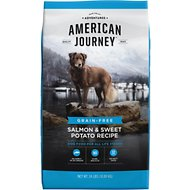
American Journey Grain-Free Dry Dog Food
American Journey Salmon & Sweet Potato Recipe Grain-Free Dry Dog Food is great for the Aussie who has specific dietary needs. It is Chewy’s brand and it includes fruits, veggies, and protein. It has no corn, wheat, or soy.
If your australian shepherd has specific dietary needs you need to keep an eye on, American Journey recipes might be a great fit. Chewy.com’s exclusive brand is known for paying close attention to keeping out ingredients like wheat, soy, and corn, which can impact your dog’s stomach if they’re sensitive to them.
This recipe also includes blueberries, sweet potatoes, carrots, and dried kelp to help boost your pet’s immune system. Sweet potatoes and chickpeas help keep your dog’s energy levels high. Deboned salmon forms the core protein, while flaxseed and salmon oil both bring in Omega-3 and Omega-6 acids.
American Journey recipes provide plenty of consideration for dogs with strict dietary requirements and picky eaters.
Ollie Healthy Turkey Feast Fresh Dog Food
Healthy Ingredients : Turkey breast, turkey liver, kale, carrots, lentils
Key Features :
- Human-Grade
- Small batches
- Slow cooked
- Auto-ships direct to your door

Ollie Healthy Turkey Feast Fresh Dog Food
Ollie Healthy Turkey Feast Fresh Dog Food
Ollie is a great fresh food option if you are in the market for a super premium dog food. Just like fresh food diets are becoming more popular with humans, they are also becoming popular with pets because there are so many benefits. Ollie’s ingredients are all human-grade and are slow cooked to preserve the nutritional integrity. There are no artificial flavors or fillers in any of their recipes, so you can be sure that your dog is getting whole, fresh ingredients and nothing more. When you sign up for Ollie, you will fill out a profile about your dog to help them create a customized recipe and delivery schedule that will suit your needs. The food is delivered to your doorstep and stored in your fridge or freezer, ready to serve when your pet needs it. Although Ollie is more expensive than other dog foods, there are a lot of added benefits that make a fresh food diet something to consider!
Taste of the Wild High Prairie Grain-Free Dry
Healthy Ingredients : Buffalo, Lamb Meal, Chicken Meal, Sweet Potatoes, Pea
Key Features :
- Great for food sensitivities
- Grain free
- Popular, reputable brand
- Highly digestible
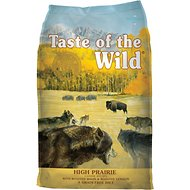
Taste of the Wild High Prairie Grain-Free Dry
Taste of the Wild High Prairie Grain-Free Dry Dog Food is a very popular choice among pet owners. It is highly-digestible and doesn’t contain any grain, corn, wheat, or soy. It’s great for dogs with food sensitivities.
One of the most popular foods we recommend to pet owners, Taste of the Wild, is sure to not disappoint your pet. With buffalo as the source of protein, dogs find this recipe to be both delicious and appealing. Peas and sweet potatoes provide your dog with highly-digestible energy to last all day and real fruits and vegetables provide antioxidant support. Taste of the Wild is a great option for dogs with food sensitivities because it is made with ingredients from sustainable sources with no grain, corn, wheat, filler, artificial flavors, colors or preservatives. Essential minerals are chelated with amino acids in this recipe, to optimize their absorption and ensure maximum benefit, for complete and balanced nutrition.
Merrick Grain Free Real Chicken and Sweet Potato Recipe
Healthy Ingredients : Deboned Chicken, Chicken Meal, Turkey Meal, Potatoes, Sweet Potatoes
Key Features :
- Supports healthy skin and coat
- Builds lean muscles
- Grain free
- 70% protein from meat
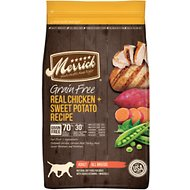
Merrick Grain Free Real Chicken and Sweet Potato Recipe
Merrick Grain Free Real Chicken and Sweet Potato Recipe has 70% protein derived from meat. It is agreat choice for building lean muscle and supporting a healthy skin and coat.
Merrick Grain Free Real Chicken and Sweet Potato Recipe has 70 percent meat protein ingredients to help build lean muscles and support healthy skin and coat. It’s grain free with no corn, wheat, or soy. It has no gluten. And it has no ingredients from China. Merrick foods are made in Texas and the company strives to use locally-sourced ingredients. The first five ingredients in the food are: deboned chicken, chicken meal, turkey meal, sweet potatoes, and potatoes. It has 38 percent crude protein and 17 percent crude fat, with 460 kcal per cup. The food also has glucosamine and chondroitin added for joint comfort, along with omega-3 and omega-6 fatty acids, and natural antioxidants. This is an all life stage formula. We think that many active Australian Shepherds would benefit from this food. Merrick also has other grain free formulas as well as limited ingredient diets, raw-infused foods, foods with grains, and canned dog foods.
ACANA Heritage Free-Run Poultry
Healthy Ingredients : Deboned Chicken, Chicken Giblets (liver, heart, gizzard), Chicken Meal, Whole Green Peas, Red Lentils
Key Features :
- Biologically appropriate
- Good for active dogs
- Good for all life stages
- 60% protein from animal
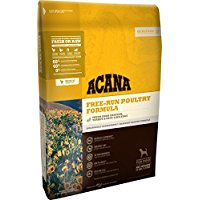
ACANA Heritage Free-Run Poultry
ACANA Heritage Free-Run Poultry is a “biologically appropriate” and made in the USA. It is 60% percent animal protein and is an all-life-stage food.
Acana makes biologically appropriate foods for dogs. This food is made by the same company that makes Orijen. The ingredients are similar but Acana foods generally have slightly less animal protein than Orijen foods – though still more than most dog foods today. The company currently has three dog food lines: Heritage, Regionals, and Singles. The Acana Heritage line is Acana’s original biologically appropriate line of dog food recipes which they started 25 years ago. These foods have fresh regional ingredients. For U.S. buyers, these foods are now made in the company’s Kentucky kitchens. We suggest the Heritage Free-Run Poultry formula for Australian Shepherds. This food is made with 60 percent animal protein: chicken, turkey, eggs. The first five ingredients in the food are: Deboned chicken, chicken giblets (liver, heart, gizzard), chicken meal, whole green peas, and red lentils. The food has 29 percent crude protein and 17 percent crude fat, with 396 kcal/cup. It’s an all life stage dog food. If your Aussie doesn’t like chicken, the Heritage formulas also come in freshwater fish and heritage meats formulas. We think Acana Heritage dog foods are very good foods for active dogs.
Wellness CORE Grain Free Original Formula
Healthy Ingredients : Deboned Turkey, Turkey Meal, Chicken Meal, Peas, Potatoes
Key Features :
- Probiotics for digestion
- Glucosamine and chondroitin for joint support
- Fiber and probiotics for digestion
- Gluten-free
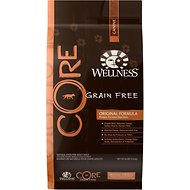
Wellness CORE Grain Free Original Formula
Wellness CORE Grain Free Original Formula is high in protein and has no artificial flavors or filler. It has glucosamine and chondroitin for joint support and fiber and probiotics for digestion.
Wellness CORE Grain Free Original Formula is high in protein with 34 percent crude protein. It has moderate fat with 16 percent crude fat. And it has 421 kcal/cup. The first five ingredients in the food are deboned turkey, turkey meal, chicken meal, peas, and potatoes. This formula has no meat by-products or fillers, no artificial flavors, and no preservatives. The recipe includes glucosamine and chondroitin for joint health; probiotics and fiber for good digestion; and omega fatty acids for healthy skin and coat. It’s grain free with no corn, wheat, or soy, and it’s gluten-free. The food does contain a wide variety of vegetables which add some carbohydrates and plant material to the food. This Wellness CORE formula should be good for many active Aussies but if your dog doesn’t like this food you may also want to consider some other foods made by Wellness. They make the Wellness Complete Health line of dog foods, for example. The protein percentages in the Wellness Complete foods are a little lower.
What is the Best Food for Australian Shepherd Puppies?
As with other puppies, Australian Shepherd puppies should be encouraged to grow slowly and stay slim. A good puppy food should provide enough calories and energy for your puppy without over-doing it.
Canidae Grain Free PURE Foundations Puppy Formula
Healthy Ingredients : Chicken, Menhaden Fish Meal, Lentils, Peas, Potatoes
Key Features :
- Calorie dense
- Grain free
- Antioxidants for healthy immune system
- Limited ingredient formula
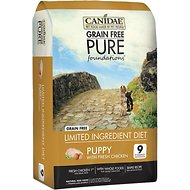
Canidae Grain Free PURE Foundations Puppy Formula
Canidae Grain Free PURE Foundations Puppy Formula is a great choice for your puppy. It provides antioxidants for a healthy immune system, and it is calorie dense.
Canidae makes several good puppy foods but we think this grain free formula might be a good choice for Australian Shepherd puppies. Canidae Grain Free Pure Foundations Puppy Formula is a limited ingredient formula that has nine ingredients plus vitamins, minerals. This food includes probiotics for good digestion. It also has antioxidants for a healthy immune system. And it has omega-3 and omega-6 fatty acids for a beautiful coat and healthy skin. The food has 30 percent crude protein and 12 percent crude fat with 520 kcal per cup. That’s a lot of calories so this puppy kibble is densely packed with nutrients. You don’t have to feed a puppy a lot of food for him to get the calories he needs. The first five ingredients are chicken, menhaden fish meal, lentils, peas, and potatoes. This is a limited ingredient formula with probiotics so it’s especially recommended for any puppies that have sensitive digestion.
Nulo Freestyle Puppy Salmon & Peas Recipe
Healthy Ingredients : Deboned Salmon, Turkey Meal, Menhaden Fish Meal, Whole Peas, Chicken Fat
Key Features :
- No potatoes or tapioca starches
- Protein-rich
- DHA for brain and eyes
- 80% of the protein from real meat
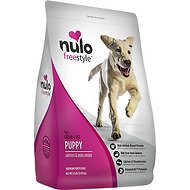
Nulo Freestyle Puppy Salmon & Peas Recipe
Nulo Freestyle Puppy Salmon & Peas Recipe is a protein-rich recipe that includes DHA for brain and eye development and does not contain any potatoes or tapioca starches.
Many people are unfamiliar with Nulo but this is company makes good quality dog foods with plenty of meat protein. In this puppy formula, 80 percent of the protein comes from real meat. The food also includes DHA fatty acids to support brain and eye development, considered crucial for growing puppies. Nulo Freestyle Puppy recipe does not contain any potatoes or tapioca as starches. The first five ingredients in the food are: deboned salmon, turkey meal, menhaden fish meal, whole peas, and chicken fat (preserved with mixed tocopherols & citric acid). It has 30 percent crude protein and 17 percent crude fat, with 428 kcal/cup. We think this puppy recipe could be a good choice for growing Australian Shepherd puppies. Nulo also has many very good quality foods for adult dogs.
Earthborn Holistic Puppy Vantage
Healthy Ingredients : Chicken Meal, Whitefish Meal, Oatmeal, Ground Barley, Ground Brown Rice
Key Features :
- Calcium and phosphorus for bones
- DHA for brain and eyes
- Low carbohydrates
- Easy to digest
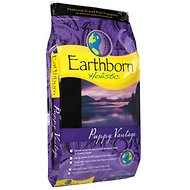
Earthborn Holistic Puppy Vantage
Earthborn Holistic Puppy Vantage is a low carbohydrate option that has DHA for healthy brain and eye development and omega fatty acids for healthy skin and coat. It also has calcium and phosphorus for bone development.
Earthborn is widely known for some of their popular adult dog formulas but many people may not be aware that the company also makes a very good puppy food. Earthborn Holistic Puppy Vantage gets excellent reviews from buyers on Chewy.com and Amazon. It has 28 percent crude protein and 20 percent crude fat, with a low 32 percent carohydrates. It has 445 kcal/cup. The food has DHA for healthy brain and eye development; balanced omega-3 and omega-6 for healthy skin and coat; and carbs in the form of sweet potatoes, oatmeal, barley, and brown rice that are easy for puppies to digest. It also has the appropriate balance of calcium and phosphorus for your puppy’s bone development. The first five ingredients in this puppy food are: chicken meal, whitefish meal, oatmeal, ground barley, and ground brown rice. We think Earthborn Holistic Puppy Vantage would be a good food for many medium-sized puppies including Australian Shepherds.
There are many good dog and puppy foods today. These are only a few suggestions. The most important thing is to find a food that works for your dog. We hope you will take the information offered here and use it to choose a good food for your dog. If you need any help, start with one of the foods recommended here or check out some of the foods reviewed in our pages here on Pawster.
Special Dietary and Nutritional Considerations
Australian Shepherds can be prone to hip and elbow dysplasia. For this reason it’s important to be mindful of your Aussie’s weight throughout his life. Aussies are usually active dogs and they enjoy exercise, but any dog can become overweight if you feed them more calories than they can use. This is especially likely to happen as your dog gets older. Your young dog may be very active and able to run off a lot of calories but most dogs start to slow down as they age. Keep this in mind and adjust your dog’s calories or look for a senior dog food when your dog starts to slow down. Being overweight or obese puts added stress on a dog’s bones and joints which worsen any tendency toward dysplasia.
Medium-sized dogs such as Australian Shepherds usually need about 30 calories per pound/per day. This is only a generalization. There are other factors that should be considered when figuring how much food your dog needs such as your dog’s activity level, age, and whether he’s neutered. Dogs that have been spayed/neutered usually need slightly fewer calories because the lack of sexual hormones slows their metabolism. However, if your Aussie is very active, he could still need more calories per day, even if he’s neutered. It’s always important to pay attention to your dog’s individual condition. Notice his coat, his energy level, his eyes, his bowel movements, whether he’s gaining or losing weight, and whether he appears hungry at meals. You can see some of the charts and tables used to make calorie calculations here.
If you have an Australian Shepherd who weighs 50 pounds, getting average daily exercise, he will need about 1312 calories per day. However, if the same dog is herding or doing intense agility training, his daily calorie needs could zoom up to 2915 calories. If your Aussie is neutered and very inactive, his daily calorie needs might dip as low as 1166. You can see how important it is to consider all of your dog’s unique factors when figuring how many calories he needs.
Since the Australian Shepherd is a medium-sized breed you should be able to feed most good quality dog foods. Many dog foods aren’t necessarily labeled for medium-sized breeds but they are often formulated for dogs in the weight range of the Aussie. The same is true for most good quality puppy foods. They may not say “medium-sized breed” on the label, but they should be suitable for Australian Shepherd puppies. You will have a wide selection of foods from which to choose, unlike some small and large breed dog owners.
If you have questions about your puppy’s weight and condition, check with your puppy’s breeder or your veterinarian.
Like all dogs, Australian Shepherds will do well eating a dog food that is made of good quality ingredients with good nutrition.
| Australian Shepherd Dog Food Comparison Table | |||
| Rank | Product | Price | Rating |
| Best Value |
 American Journey Salmon & Sweet Potato Recipe Grain-Free Dry |
$1.49/lb |
A+
|
| Human Grade |
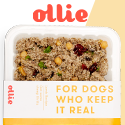 |
Varies |
A+
|
| Most Popular |
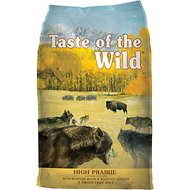 |
$1.49/lb |
A+
|
| #1 |
 |
$1.55/lb |
A+
|
| #2 |
 |
$3.22/lb |
A
|
| #3 |
 |
$2.31/lb |
A
|
| #4 |
 |
$2.35/lb |
A+
|
| #5 |
 |
$2.43/lb |
A+
|
| #6 |
 |
$1.23/lb |
A-
|
Frequently Asked Questions about Australian Shepherd Foods
Should my Australian Shepherd eat grain-free dog food?
Australian shepherds are prone to food allergies, and grains can often be the cause of common allergies in dogs. Trying a grain-free food, after checking with your veterinarian, might be a good idea. In addition, supplements and prebiotics are a great way to support your australian shepherds digestive health.
How much should I feed my Australian Shepherd?
Australian Shepherds should eat about 30 calories per pound per day. This is dependent on a number of factors though, such as physical activity, age, and health. You should definitely discuss your pet’s feeding with your veterinarian to ensure that you are doing what is right for you pet’s unique needs.



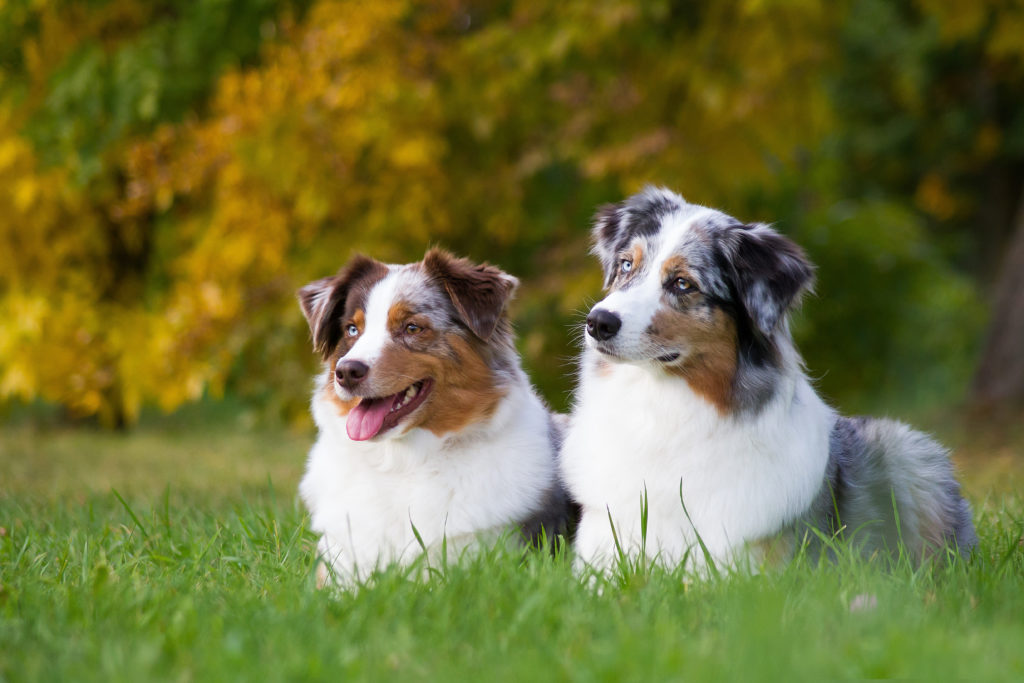
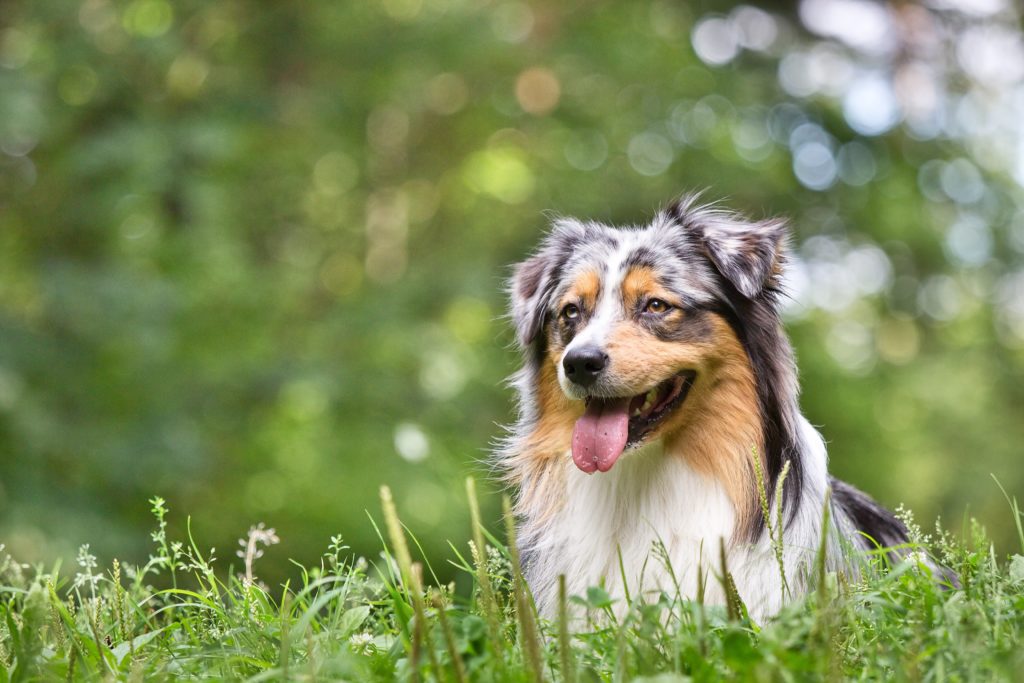
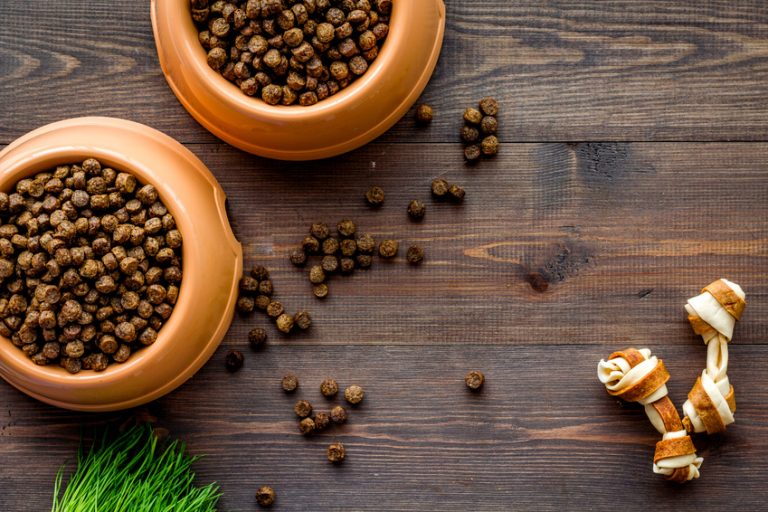
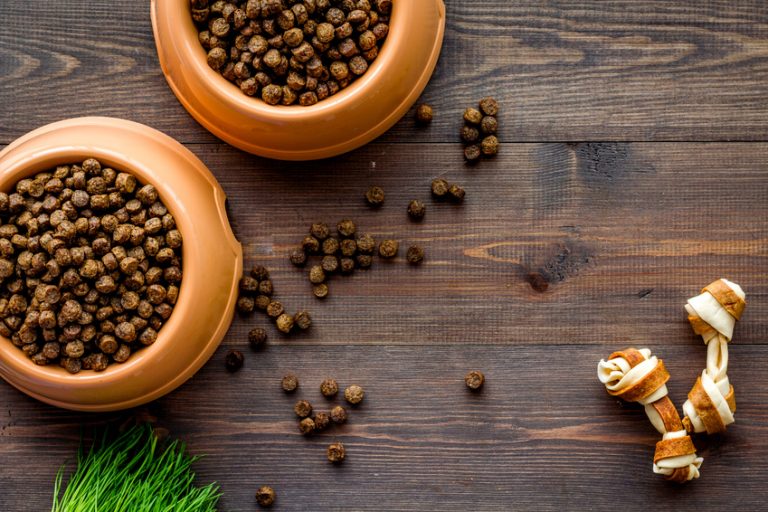
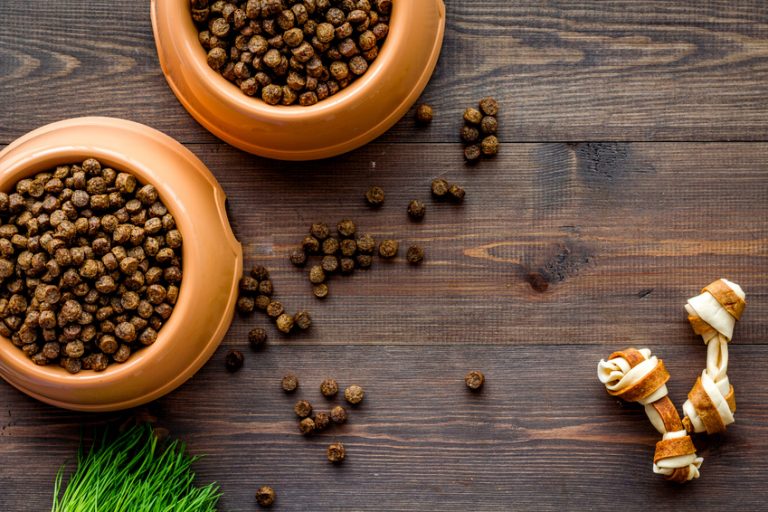
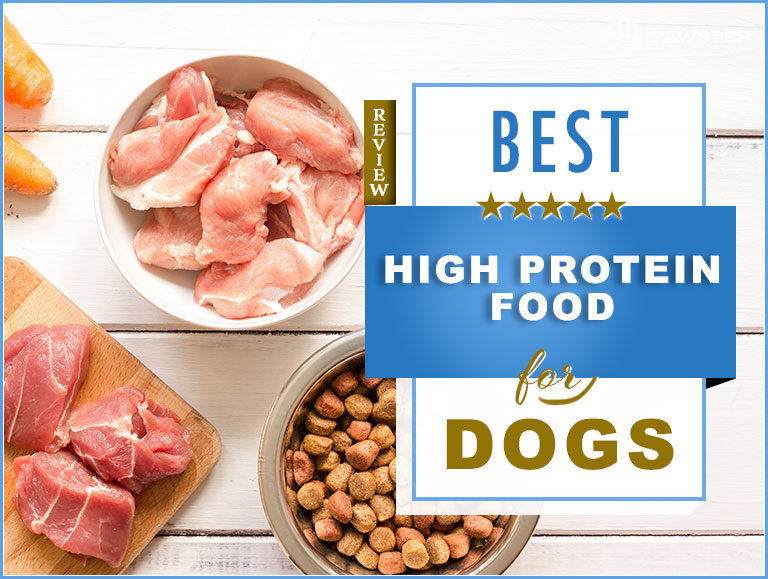
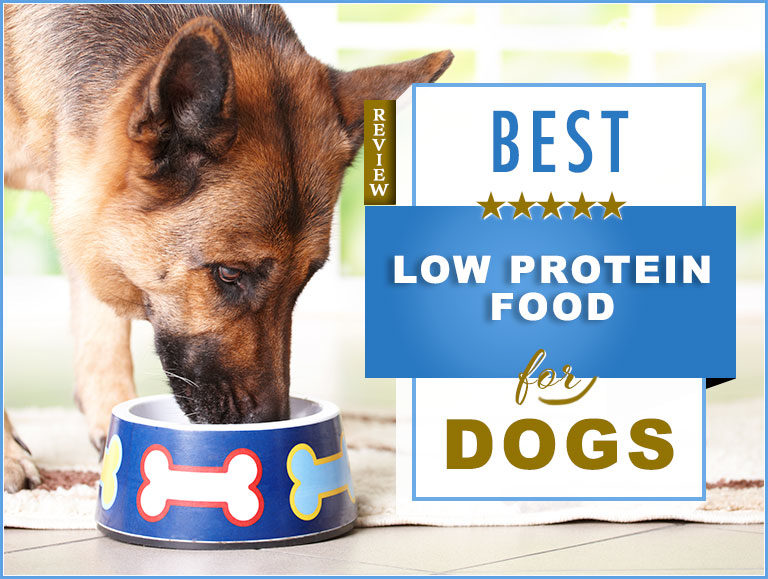
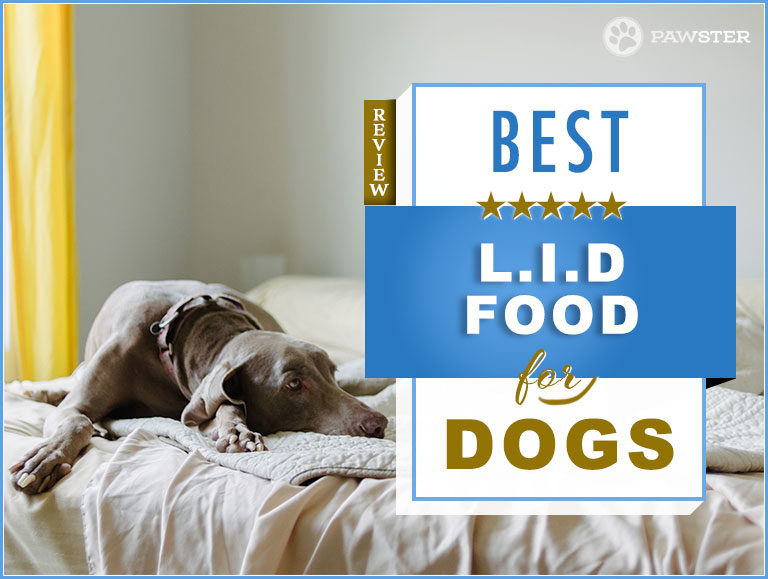
Thank you so much! This article was extremely helpful. With so many choices for food out there I feel confident with my decision after reading this. You are what you eat!and that goes for puppy too!